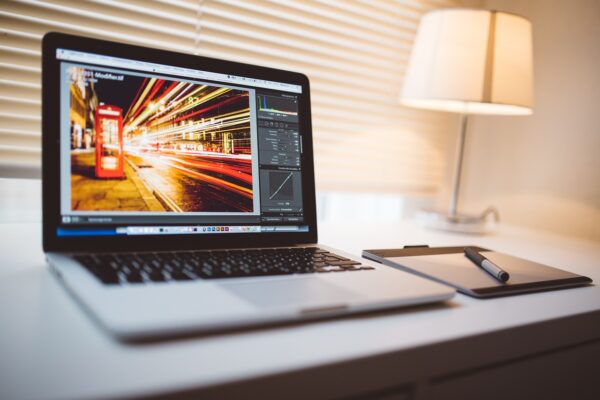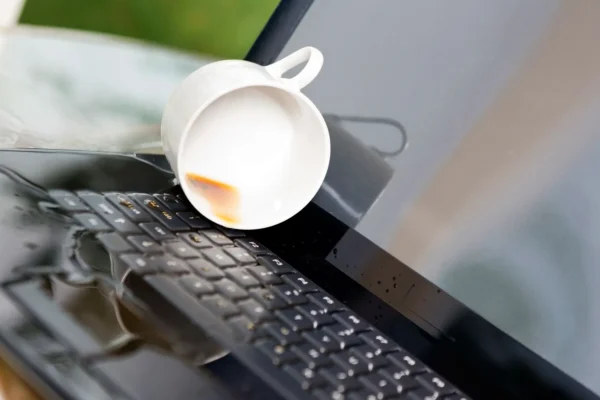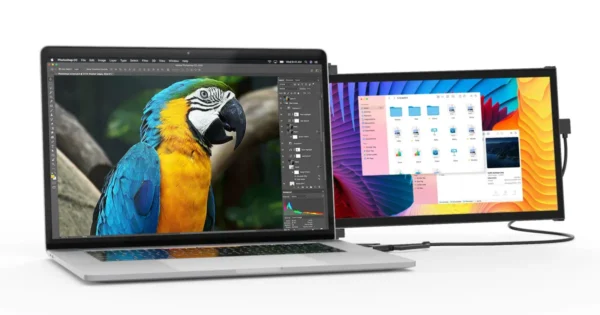Is your computer feeling more sluggish than usual? A slow computer can turn even simple tasks into a test of patience, leaving you frustrated and unproductive. But don't worry – there are plenty of ways to bring your system back up to speed! Underperforming software, background processes, or even storage space can be warrants that cause underwhelming performance on your device. But locating and fixing the underlying one is easier than you would think. We'll discuss the essential steps that will help you limit all unproductive activities and optimize the performance of your computer. From quick fixes to pro tips, we've got everything you need to breathe new life into your device and get it running smoothly again. Let's dive in!
Reason Why Your Computer is Slow
There are too many programs and services to compile a concise list of the things that are probably slowing down a computer, but that doesn't imply there aren't any potential culprits. These are a few of the most common PC problems that we all encounter.

1. Antivirus Scans
After watching your system operate slowly with Task Manager open, you may see that your antivirus program is frequently at the top of the list. Antivirus software might cause your computer to slow down when scanning for malware and viruses. Instead of allowing your antivirus program to scan whenever it sees fit, set it to run at times when you are unlikely to be using your computer. Changing the scan schedule depends on the application you're using, but in general, you may customize the timetable by opening the app and going to the settings pane.
2. Too Many Apps Running
If your PC takes forever to respond after logging into your Windows account, you most likely have too many apps running at startup. Launch the Task Manager and select the Startup Apps option; you can change the list of programs and services that launch when you log in to your computer.
3. Web Browsers
If you’re wondering what to do if computer is running slow, check out your web browser. If you can't remember how many windows and tabs you have open, your web browser might be the problem. Your computer will eventually start to lag since each tab and window in your browser uses memory and computing resources.
4. Outdated Operating System
Drivers serve as intermediaries between your program and hardware. Outdated components may have trouble communicating with one another, which can lead to crashes, sluggish performance, or worse, sporadic failures. Similarly, when newer software needs more of your old system, an older operating system might cause issues since it lacks new features and performance enhancements.
How to Fix Your Slow Computer

If you don’t know what to do if computer is running slow, check out these steps:
1. Restart Your Computer
Restart if you're in doubt! During computer operation, your operating system allows RAM space for various applications. Your computer will slow down if your RAM becomes full, which might happen from multiple tabs open on your browser. Just restarting your device will remove all data from the random-access memory (RAM) and only load the programs that are necessary for your computer. After that, you should only launch the necessary apps to finish your task. You'll probably end up back where you were before you opened other programs.
2. Manage Energy Performance
Select System and then Power and Battery from the Settings menu. Windows does a fantastic job of controlling your power mode. This is especially useful if you are using a laptop that is not powered on. Select System under Settings, then select Power and Battery. When using a laptop that is not attached to a power source, Windows does a fantastic job of controlling your power mode. In this situation, you can select the Balanced mode or the Best Power Efficiency if your battery is running low. On the other hand, select Best Performance if your computer is plugged in and operating slowly. Even though the computer may get hotter and you may hear the fan preparing to take off like an airplane, you will undoubtedly push your machine to operate as quickly and efficiently as possible.
3. Identify Apps Slowing Down Your Computer
A slow computer can be fixed by reducing the number of active programs. You might not even need some of the programs that are consuming a lot of computing power. Press the Ctrl, Alt, and Delete keys, then select Task Manager. The Processes tab displays the number of open processes as well as the amount of CPU and RAM they are utilizing. You can then close any programs that you are not currently using.
4. Check Your Hard Drive/RAM
Still wondering what to do if your computer is running slow? Try this. The processing performance of the computer can be lowered by up to 50% if the hard drive is at least 85% full. This is due to the minimal amount of virtual memory that is currently available for storing temporary files that enable programs to perform smoothly. Programs, application updates, downloads, deleted program files, and temporary files occupy the majority of drive space.
Programs that need a lot of memory to function are the main offenders when it comes to RAM. These consist of industry-specific apps or graphic design software like Photoshop. The first step in the process is to know how much free space you have on your hard drive. You should have at least 20% of your disk space available; if not, you can increase it. If your RAM is maxed out, you will need to install more RAM hardware to meet your needs.
5. Check for Malware
While memory usage may increase when protection software scans for various types of malware, it is well worth the effort. Make sure you're using the most recent version of your preferred security software and perform the scans manually to prevent having them run in the background while you need that performance. An alternative is to use the free online scanner offered by ESET. Keeping your computer safe from malware will shield your files, activity, and private data from being misused.
6. Adjust Your Privacy Settings
This point is quite important. If you’re wondering what to do if your computer is running slow, try this. It will not only allow you to restrict how apps use services like your location or microphone, but it may also speed up your computer. Go back to Settings from the Start menu, select Privacy and Security, then under App Permissions, go through each of those areas (location, camera, microphone, etc.), and turn off access for apps that don't require those services. Of course, this means that your programs will be unable to warn you about something they are set to do, but it may be beneficial to the functionality of your system overall. Remember that even if your PC is running smoothly, you should always check this menu to see what permissions you are allowing the installed apps.
7. Pause OneDrive Syncing
If you use Microsoft OneDrive to save data in the cloud, your PC will constantly sync with the cloud. This ensures that your files are properly stored regardless of whether you view them via your desktop or a web browser. This syncing can cause your computer to slow down since it consumes valuable computer resources. If you're having trouble with computer performance, suspending OneDrive synchronization might free up disk space and resources, allowing your PC to run faster. To achieve this, locate the cloud-like OneDrive symbol on the taskbar close to the notification area. Open the OneDrive menu by selecting the OneDrive icon, then Settings, or the gear sign. Go to the sync menu, check your settings, and turn off any settings you don't wish to sync automatically. In certain situations, you can then decide how long you wish to stop your files from synchronizing.
8. Upgrade to an SSD
Last on our list of what to do if computer is running slow is upgrading to an SSD. The speed with which your disk drive stores data is a major influence on the performance of your PC. The CPU must read and write data to your hard drive each time you launch a file or application, such as to edit a picture or play a game. Large volumes of data can be stored on conventional hard disk drives (HDDs), which are widely accessible.
However, due to their reliance on moving parts, HDDs are slower than contemporary solid-state drives (SSDs).SSDs are far faster than HDDs at reading and writing data. Making the switch from an HDD to an SSD will reduce the time it takes for your computer to start up and download files from the internet, among other performance issues. A single SSD can frequently provide enough storage space for a laptop or PC tower to hold everything a power user, gamer, or content creator might need.
Is My Computer Slowing Down Because It's Overheating?
Yes, your computer may slow down due to overheating. Slower speeds may result from a PC throttling CPU and GPU performance to lessen heat generation when it becomes too hot. Maintaining ideal temperatures and avoiding thermal throttling can be achieved by making sure that there is adequate ventilation, clearing dust from fans and heat sinks, and perhaps upgrading your cooling system. You can also check why your computer is overheating here.
Will Changing My Operating System or Drivers Enhance the Speed of My PC?
Yes, you can increase your computer's speed by updating your drivers and operating system. Updates frequently contain security updates, bug fixes, and performance improvements that can improve your system's efficiency. Slowdowns and compatibility problems might result from outdated drivers, particularly for important parts like the network adapter or graphics card. Updating your system guarantees that you have access to the most recent development optimizations and enhancements.
Conclusion
A slow computer can be annoying, but there are many simple solutions to boost its performance. Understanding what to do if a computer is running slow will save you a lot. By implementing these tips, you'll be able to identify and fix common issues, freeing up resources and getting your computer running smoothly again. Regular maintenance and troubleshooting can prevent future slowdowns, saving you time and productivity.















